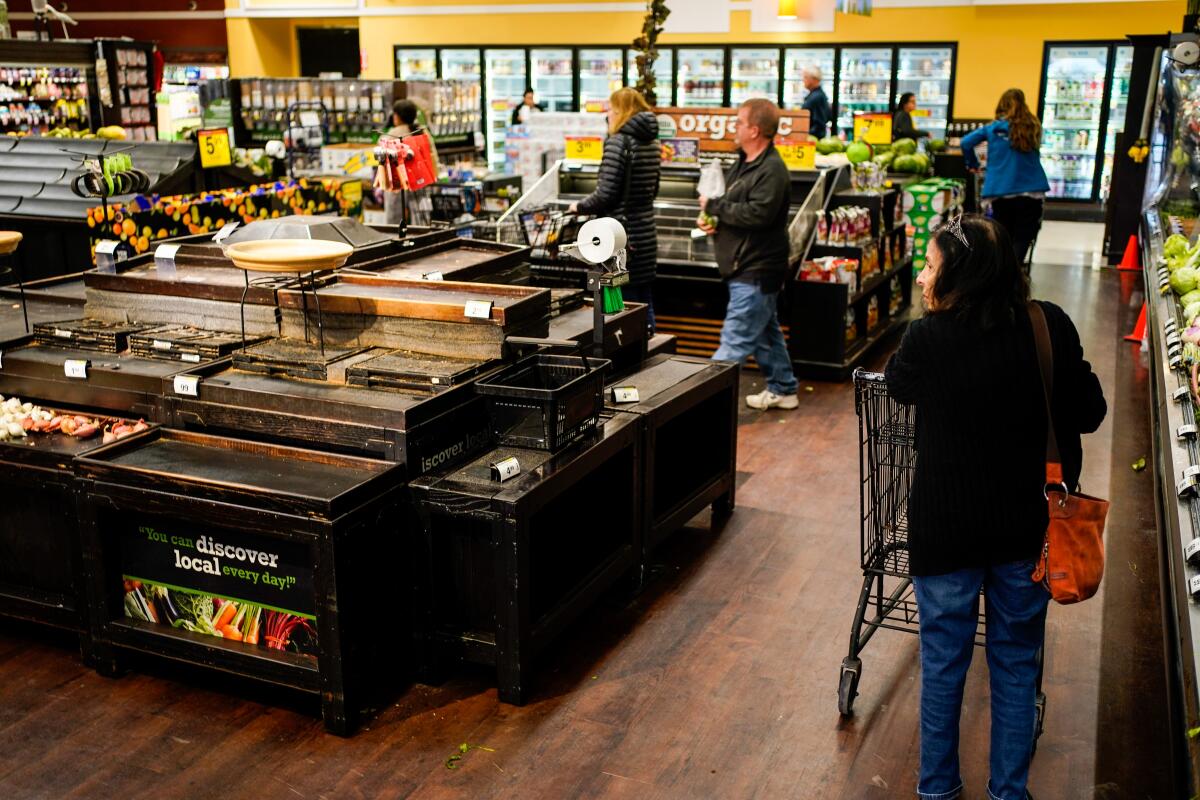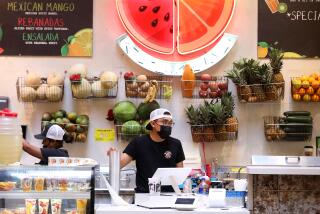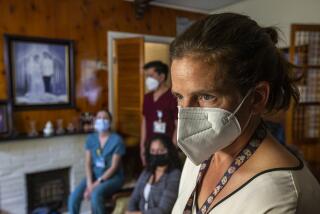California calls on millions of senior citizens to stay home because of coronavirus. What you need to know

Gov. Gavin Newsom on Sunday called for 5.3 million senior citizens and others at risk to stay home in an effort to slow the spread of coronavirus.
The call for home isolation also extended to people with chronic conditions that make them vulnerable to the virus.
Big change
The announcement raises many questions for senior citizens. For those who live alone, they will have to grapple with getting shopping done. For others, it will be a radical change of life with no firm idea of when the restrictions will end.
“We recognize that social isolation for millions of Californians is anxiety inducing but we recognize what all the science bears out and ... we need to meet this moment head-on and lean in,” Newsom said Sunday.
He said plans are being made to help carry out the sweeping directive.
“We are prioritizing their safety,” Newsom said.
He also urged family members to take care around the elderly and frail:”People should conduct themselves around their grandparents as if they have it.” Newsom said.
Highest risk
Officials have long said senior citizens and the frail are at highest risk. Counties in California have already banned those groups from attending many types of public gatherings.
Those at higher risk include those over the age of 70 and with underlying medical conditions such as diabetes, obesity, asthma, disease of the heart, lung or kidney and those with weakened immune systems. If someone who falls into one of those categories does get sick, early diagnosis is important to allow more time to treat the patient, which may include putting the patient on oxygen or, when necessary, a ventilator to help them breathe if their lungs begin to fail.
Experts have been urging protections against high-risk groups. The key is “keeping this virus away from nursing homes, long-term-care facilities and elderly people whose lungs can’t recover from this,” Dr. Jeremy Faust, an emergency physician at Brigham and Women’s Hospital and instructor at Harvard Medical School, said last week.
As of Saturday, here is a breakdown of the age of California coronavirus patients:
0-17: 4
18-64: 143
Age 65-plus: 98
Unknown: 2
Prevention
The Centers for Disease Control urged seniors in areas where there is community spread of coronavirus to “stay home as much as possible and consider ways of getting food brought to your house through family, social, or commercial networks.”
Among other tips:
- Wash your hands often with soap and water for at least 20 seconds, especially after blowing your nose, coughing, or sneezing, or having been in a public place.
- If soap and water are not available, use a hand sanitizer that contains at least 60% alcohol.
- To the extent possible, avoid touching high-touch surfaces in public places — such as elevator buttons, door handles, handrails, handshakes. Use a tissue or your sleeve to cover your hand or finger if you must touch something.
- Wash your hands after touching surfaces in public places.
- Avoid touching your face, nose, eyes.
- Clean your hands often.
- Clean and disinfect your home to remove germs: Practice routine cleaning of frequently touched surfaces, such as tables, doorknobs, light switches, handles, desks, toilets, faucets, sinks and cellphones.
- Contact your healthcare provider to ask about obtaining extra necessary medications to have on hand in case there is an outbreak of COVID-19 in your community and you need to stay home for a prolonged period.
- If you cannot get extra medications, consider using mail-order for medications.
- Be sure you have over-the-counter medicines and medical supplies (tissues, etc.) to treat fever and other symptoms. Most people will be able to recover from COVID-19 at home.
- Have enough household items and groceries on hand to be prepared to stay at home for a period of time.
More to Read
Sign up for Essential California
The most important California stories and recommendations in your inbox every morning.
You may occasionally receive promotional content from the Los Angeles Times.












